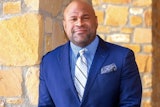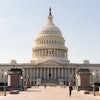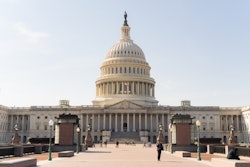As Governor Ron DeSantis and the Florida state legislature have raced to re-shape higher education in the state with bills restricting DEI efforts, limiting tenure protections, and banning the teaching of controversial subjects, the silence from Florida’s public college leaders has been deafening. None have spoken out against what experts see as serious violations of academic freedom, and 28 community college leaders signed a letter supporting several of the reforms.
“I’m sure many of them are exhausted and terrified,” said Patricia McGuire, president of Trinity Washington University, a private Catholic college in the nation's capital, that counts Nancy Pelosi as its most famous alumnae.
They may have good reason to fear. DeSantis has shown a taste for retribution, and it’s not hard to imagine that college leaders who speak out against him could find themselves fired and their institutions penalized financially.
“Those presidents have a hostage to worry about,” said Tania Tetlow, president of Fordham University, a Jesuit school located in New York. “They’re not in a position to speak freely.”
Other current and former college presidents who spoke to Diverse argued that someone has to stand up.
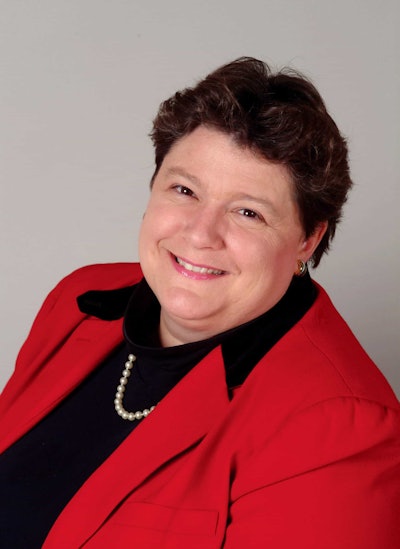 Patricia McGuire, president of Trinity Washington University
Patricia McGuire, president of Trinity Washington University
Dr. Brian Rosenberg, a visiting professor of education at Harvard University and the former president of Macalester College, said that a defiant response from university presidents could make a real difference.
“Someone who does push back can make an impact on how the public perceives these policies,” he said. “[Otherwise,] these policies go unchallenged, and the public assumes that they must make sense.”
Dr. Walter M. Kimbrough, the interim executive director of the Black Men’s Research Institute at Morehouse College and former president of Philander Smith College and Dillard University, agreed.
“If someone spoke up, it would inspire a massive number of supporters to push back,” he said.
Kimbrough argued that it is easier to galvanize groups around a person than an abstract ideal, like “academic freedom.”
“You need that central figure, somebody that’s willing to go head-to-head against this policy and risk their job to do it,” he said.
Ideally, Kimbrough said, presidents of bigger universities like Florida State would step up, marshaling their influence.
“I don’t think [DeSantis] would attack that institution because there are too many powerful Florida State alumni,” Kimbrough said. “The president might be in jeopardy, but that’s just one person [instead of] the entire institution.”
Tetlow, however, suggested that a president risking their job might not always be the best thing for a school because that leader could be replaced with someone who supports DeSantis’s changes. Staying on and waging a more subtle resistance might be the right move.
“There are a million ways to quietly not be compliant,” said Tetlow.
McGuire, Rosenberg, and Kimbrough agreed that leaders who might be afraid for their institutions and their jobs could help protect themselves by speaking collectively—through a joint letter, editorial or press conference.
“It would be a national story,” said Kimbrough. (Kimbrough acknowledged that Florida leaders may be working on collective action behind the scenes but said that he has not heard any evidence of it. McGuire said that she had not heard anything suggesting a unified response either.)
Presidents who are reluctant to speak out, even together, could host a conference about academic freedom, suggested Rosenberg.
By doing this, he said, “you’re not necessarily making a direct statement yourself, but you’re playing host to an event that would attract attention and voice an alternative viewpoint.”
Making national connections is also important, according to McGuire.
“If [presidents] feel they’re too close to the flame in Florida, they should work on coalition-building with presidents in places who can speak out,” she said.
Florida presidents should connect with allies in Congress from outside the state, said McGuire, and push major higher ed associations to speak up more forcefully.
For Florida college leaders who might be considering public statements, the presidents who spoke to Diverse advised that they speak carefully and strategically.
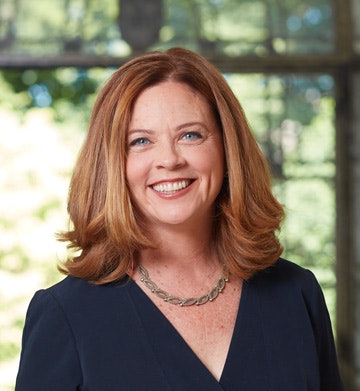 Tania Tetlow, president of Fordham University
Tania Tetlow, president of Fordham University
“This is just basic human psychology, but if you tell people that what they’re doing is fascist and evil, they’re probably going to get defensive and not hear you,” she said.
Rosenberg agreed.
“The governor of Florida is not known for his civil tone,” he said. “But I think you get more respect if you respond to incivility with civility. Make the points clear and forceful, but the tone civil and respectful.”
McGuire recommended that presidents avoid labels that evoke the political nature of the conflict, like “liberal,” “conservative,” “Democrat,” or “Republican,” and instead focus on deeper principles. Leaders should “speak to the moral value of the enterprise that you represent: intellectual freedom, the right of students to learn, and the right of faculty to teach as they wish,” she said.
These types of appeals to widely shared beliefs can work, according to Tetlow.
“You remind people of their own stated values,” she said. “If what you want is free speech, let’s have free speech. But having government decree what we can and cannot say is not free speech.”
Rosenberg was optimistic that leaders who risked their jobs by speaking up would land on their feet.
“My guess is that a Florida college president who pushes back and is fired would be quickly snapped up by someone else who admired someone who had some principles,” he said. “At the end of the day, rarely do people who stand up for their principles end up looking worse.”
But no matter how carefully a president speaks out, he or she is still putting his or her institution at risk. For Tetlow, what presidents should do isn’t so simple.
“How you protect the greater good—what the right tactical decision in this moment is—is really tricky,” she said. “I have a lot of empathy for them.”
Jon Edelman can be reached at [email protected]
